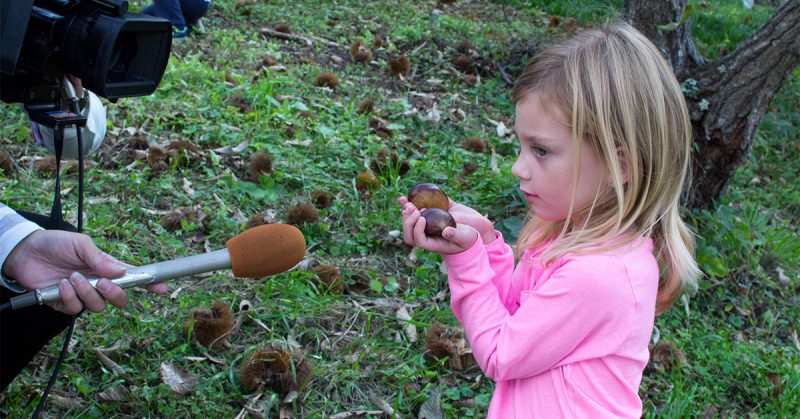The first time you tell your son that he can’t go play in the front yard alone like he casually announced on his way out the door of his new house, you realize you aren’t in Kansas anymore, Toto — or rather, you aren’t in Japan. You’re back in the US of A, and while it has so many things we missed during our three years OCONUS in Japan, the reverse culture shock hits hard.
When we moved to Japan three years ago, everyone had suggestions about culture, language, food, history and geography to help us acclimate quickly. Coming back, there really wasn’t much solicited or unsolicited advice to be found. Maybe by the end of an OCONUS tour, people are just so ready to be headed back to the comfort of convenience and familiarity that they don’t think to share their cultural reimmersion experience. Whatever the reason, it’s strange feeling like a stranger in your home country, and it’s about time we started talking about it.
- Guess how many times I locked my car in Japan in three years? Seriously, guess. Zero. Not once. I’m not even sure I could lock it, to be honest. Beyond that, I would routinely leave my purse in my unlocked car during my weekly sea glass hunting beach visit. Need more proof? During a visit to the Shimonoseki Aquarium, my son left his watch beside the touch tank. Ten to 12 minutes later, he realized he lost it. In the United States, this would’ve ended with a “Sorry, bud, it’s gone, and you need to keep track of your stuff.” In Japan, though, that watch was waiting for him at the customer service counter. While we’re more or less helicopter parents in the states, our kids ran free through Japanese playgrounds and parks. We never once gave a moment’s pause to losing sight of them, even in metro areas, like Tokyo and Osaka. We’d often find our ex-pat kids playing alongside Japanese children who were practicing their English. We had to have some scary conversations with our kids ahead of our return to the states. We reminded them that they shouldn’t talk to strangers. They cannot take candy from people (like we did many times traveling through Asian airports). And, they cannot run off alone in parks or stores. To be fair, we’ve also reminded them that they don’t have to jump every time we see an insect — they aren’t all murder hornets and mukade. If we’re handing out trophies for who is having the hardest time with reverse culture shock in our family, the kids win.
- As an ex-pat in Japan, I routinely made a fool out of myself. It’s called a foreign country for a reason — nothing is familiar or reflex. When I incorrectly handed over a 10,000-yen bill instead of a 1,000, (yes that actually happened), the cashier apologized to me and righted my error. My problem became their problem, and they didn’t take that responsibility lightly. When I would allow someone to turn into traffic ahead of my car, he or she would bow, every time, without fail. I have yet to try that bowing thing in I-95 traffic, but I don’t see it going well. Speaking of bowing and cars, I once had to visit a Japanese car dealership to check on a recall notice. It turned out that my particular model of box on wheels was old enough to be exempt, but I was still treated to a comfy chair and tea overlooking the children’s play area in the car dealership. When I left, the representative who’d helped me, stopped traffic and bowed to me until I was out of sight. We just bought two cars upon returning to the United States, and I can confirm that, as nice as the salesmen were, none of the above happened.
- This will be a short section. (Making the efficiency section short is getting rave comedic reviews with my current audience. Also, that audience is just me.) The Japanese culture is the most efficient thing I’ve ever seen. Trains, construction, standard operating procedures — well-oiled machines. Renewing my car’s annual road tax at the tax office took, start-to-finish, four minutes. That’s the time to beat next time I have anything car- or tax-related to tackle.
- I just made my first grocery store run stateside. The options of tomato varieties alone had my head spinning. OCONUS only has three tomato options: in stock, out of stock or rotten. To be clear, lack of options OCONUS is hardly a perk, but it certainly made things simple. I just wasn’t prepared to have to choose between grape, cherry, Roma, organic or on-the-vine tomatoes.
- I don’t have to tell you that 2020 has been a heavy year for the American people. And while news is accessible overseas, it isn’t as aggressive as it is in the states. We could absolutely ignore the national (U.S.) news if we wanted. Unless it was world news or military-specific, it didn’t really impact our day-to-day living.
- I think we were all taught as kids that you touch as little as humanly possible in a public bathroom. So, the first time I experienced a clean, heated public toilet in Japan, I was forever changed. In each bathroom stall is seat cleaner, and it is up to the individual to clean before and after use. This completely eliminates the need for the public bathroom hover squat…until you return to the states where you revert back to what mama told you: “Don’t touch anything.” Cleanliness is more than just a clean bathroom in Japan, though. Public transportation sparkles.
- Long weekends had us hopping up to Tokyo or Seoul, climbing Mt. Fuji or zipping down to Okinawa. Longer school breaks allowed us to see Indonesia, Thailand, Vietnam, Malaysia, Singapore, China and Taiwan. Not to discount the amazing national parks, scenic backdrops and historical sites the United States holds, but travel is just different OCONUS. For our family, it was just as much a priority as t-ball and gymnastics. Settling back into stateside life means that travel, especially international travel, falls lower on our radar.
- Miscellaneous Japan-isms. I laughed to myself when my husband responded with “Hai” when a SEATAC employee gave him directions to the next elevator. Habits of three years die hard. We got used to seeing kawaii culture (Japanese cuteness) everywhere from construction sites to prison sales (yes, it’s a thing). We got used to it all without even realizing, and we didn’t realize just how engrained it was until we now find ourselves trying to forget it all and relearn American culture. We’re sliding back into it more each day but are refusing to let certain things go. If you want to check our progress or the progress of other repatriates, just keep an eye out for the car switching their windshield wipers on ahead of making a turn (because they’re switched on the steering column). We call that the Iwakuni wave. So, ya’ll be nice and wave back to make us feel welcome.






OMG! I can really relate! I miss all the things you wrote about, and more. Old (Japanese) habits die hard, too! I’ve been back from Misawa for about 15 years, and up until maybe 3 years ago would periodically go around to the passenger side of my car here in America and expect to see the steering wheel. Also, I met a Japanese lady last summer who has been in America for about 25years. During our conversation, I automatically went back to my head bows, non-verbal Japanese acknowledgment sounds, and “Hai!,” “so, so, so, so, so,” or “so desu ne.